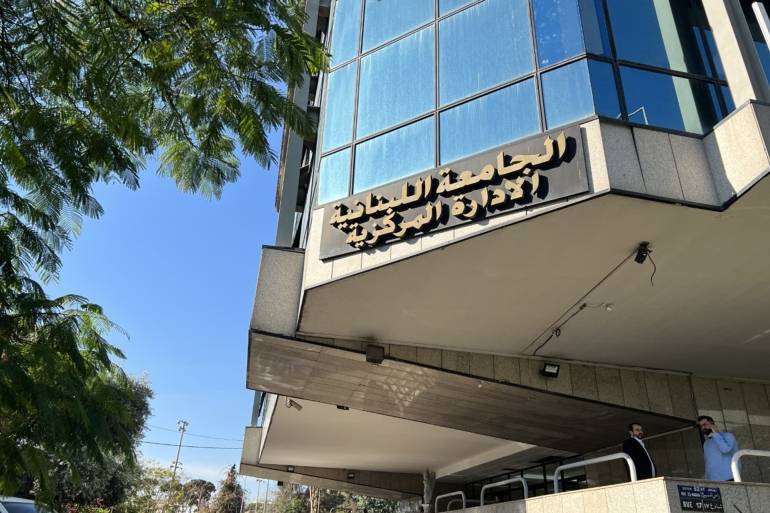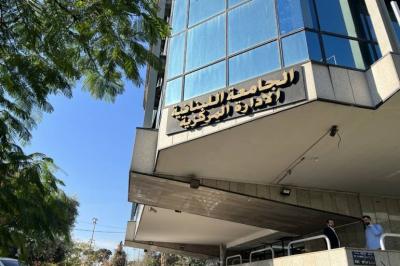The Lebanese University’s administration's decision to return to in-person classes for the upcoming academic year, without a clear plan, has triggered significant unrest among professors. They perceive the call for preparing workloads without the necessary resources to support the transition as an implicit threat, forcing them to choose between working under duress or resigning. The announcement of this move has created a stir particularly among professors, mainly due to a lack of clarity about the measures and solutions that will ensure a "studied" return, as described by the university's administration.
Meanwhile, the university president, Bassam Badran, is working to smooth the path for this return, sometimes by initiating consultations with academic and union bodies within the university, and at other times by seeking financial assistance from the World Bank, international and Arab donors, and retrieving the owed funds from PCR tests currently held by the financial prosecutor, Judge Ali Ibrahim. In his efforts, Badran asserts that the reasons for transitioning to remote learning have dissipated; there is no official decision on the general mobilization due to COVID-19, and life has returned to normal in all universities and schools. Academic sources have reported Badran stating that a strict implementation of the full-time system will occur and that the university will not cover any professor who travels. Raising student registration fees to 1.5 million Lebanese pounds during the undergraduate phase will be an option if efforts hit a dead end.
However, sources indicated that the party-affiliated education offices that previously supported traveling professors have apparently decided to withdraw their support. While the administration's comments regarding the "inflation" in the number of professors in branches and divisions could lead to the termination of some contracts, others see the management of the return to in-person classes as an opportunity to open the door for new contracts.
University insiders realize that this step will be rife with challenges and that execution cannot happen at the push of a button. While the direction appears central, serious, and decisive, especially after professors were asked, through the administrative chain from the presidency to the deans, via branch directors and department heads, to finalize their options regarding the university and prepare workloads based on in-person teaching, they may later review their direct academic responsibilities if they wish to amend their employment status.
At first glance, some professors did not take this direction seriously, placing it within the framework of "propaganda" and testing the waters to count the professors who have emigrated. Some professors in certain faculties have not complied with the request to complete the workload forms, hesitating to agree to return. They argue that returning under these conditions is nearly impossible, especially since no practical proposals have accompanied the directive to support professors through wage corrections and transportation allowances. Some groups of professors expressed their anger on social media over a decision that leaves them with two options: "either work for free or resign!" Some described the step as a path toward the systematic destruction of the university, paving the way for its privatization and the closure of most of its branches. In contrast, others believe that the trial will provide the strongest evidence, and they have no objection to testing whether the university will indeed take off, particularly after the failure of online education and the obliteration of all means of confrontation, most recently the mandatory cessation, to protect the university and its professors, and "to block the path of those who dare to fish in troubled waters," as one department head in the Faculty of Science put it, given the constant threat from the World Bank and donors that in-person attendance is a prerequisite for any assistance or social grants to professors, just as occurred with public education professors.
The Dean of the Faculty of Engineering, Rafiq Younes, believes the return is possible and necessary but contingent on providing financial resources and technical solutions. He remarked that the decision is fraught with challenges, noting that the crisis is not new, having started due to COVID-19 during the 2019-2020 academic year but has continued due to the economic situation in Lebanon. He discussed obstacles that hinder the implementation of the return to in-person learning, even as issues may differ from one faculty or branch to another within the university.
He pointed out that some professors are unresponsive to calls for a return, some of whom have arranged their affairs abroad, while others have chosen to teach at private universities and have adapted accordingly. The most significant problem facing faculties is ensuring the arrival of adjunct professors, whose annual income ranges between $1,000 and $1,500—a sum insufficient to cover fuel costs for commuting to their faculties. "Moreover, there is also a need to secure enough money to operate electricity generators most of the time given the almost permanent interruption of state electricity. A final issue is currently the lack of companies to operate and maintain certain complexes," such as the Tripoli Complex, with the possibility of this problem recurring in the future at other complexes.
Younes noted that possible solutions are being considered, such as combining full-time faculty workload into just two days a week, having vocational instructors teach on one day, and adopting online instruction for adjunct professors. However, it is also crucial to adopt a blended learning model to divide time between in-person and online classes, as a large sector of students will struggle to commit to daily attendance at the university. Regarding the potential for such a decision to result in university losses of talent, he acknowledged that this loss is unavoidable, and the real issue lies in ensuring substitutes capable of dealing with the current financial resources of the university, along with a need for new professors to feel a sense of belonging rather than leaving at the first opportunity. Younes emphasized that the university’s continuity depends on the professors and staff who exert significant efforts and support the return to in-person education while recognizing the need to blend both teaching methods, which is currently the best option for the university, professors, and students, allowing faculties and branches to choose the number of days that suits them.
In a statement to "Al-Akhbar," Bassam Badran, president of the Lebanese University, clarifies that the general direction to return to in-person classes is a natural step after opening the country and adopting in-person learning in all universities and schools. The call for preparing workloads is a necessary measure to determine needs, warning that "continuing remote education for an additional year will undermine the standard and quality of education." Hence, efforts are made to provide all requirements for a well-studied return, whether through securing support for teaching and administrative staff via ongoing negotiations with the Ministry of Education and the World Bank, or providing operational costs for faculties and branches. Choices being considered include consolidating teaching days to three days and transferring professors' workloads to the faculties closest to their residences, and plans will be put in place to achieve the desired goal.
When asked whether raising registration fees is among the proposed options for the return, he responded, "We are fully aware that students are struggling, and we cannot impose any additional burdens on them; thus, we will not contemplate this option unless all avenues are closed against us and donor parties refuse to provide assistance." Badran believes that the "leakage" of professors, whether through emigration or leaving the university for other institutions, "should not deter us from ensuring the success of in-person education, which preserves standards and protects students' rights." However, without transferring workloads, there are many challenges and logistical difficulties, according to professor sources, and this move could deplete an entire branch of its resources, as there are between 20 and 30 percent of professors who live far from their areas, a percentage Badran doubts is accurate: "We will not head toward mass suicide, and we will not allow anyone to close the university. We will push the state to increase its contribution to it to 600 billion Lebanese pounds, based on what it raised in the operational expenses item in other sectors."




